Although we are living in times where Rabonim and Gedolim have been disappointing (not all), we must try to believe in the Torah in the way that it was meant to be practiced. Too many times in our days, events that do not correspond with Halacha and the Torah, are given heterim as to why it is muter to do. I don't have to go into too much detail, we all know what i'm referring to. This is why i felt it is so pertenent for me to point out how much i do love the torah, and how much i do love judiasim, and how happy i am to be of the Jewish faith. Were it not for Rav Simcha wasserman zt'l, my father zt'l, who grew up in a non-religious home, would have not been turned into a baal tshuva and a big talmid chochom. He would not have learned the entire Shaas in one year. He would probably have lost his vision completely, were it not for the great sages: The Baba Sali, R, Moshe Feinstein, and others. My father a'h, who was LEGALLY blind to the point that he was given a month to lose all his vision by Dr's, had his gezira overturned by the REAL Dr. who rules the world (melech malchai mamlochim hakodosh baruch hu). He was given a blind walking cane, and told to get a seeing eye dog for the blind, both of which he would never need. Tzadik Gozer Vhashem Mekayem. Were my father to finish shas within one year (my father zt'l was 17 at the time, new to judiasim), he was assured by gedolei hador, that his vision would remain as it remains this moment, and he would not lose it completely, providing he finishes learning the entire shas in one year. So said the baba sali, and so said r' moshe feinstein. No need for a cane, no need for a dog. And of course that is the way it happened. (not to mention the miracle of a full glass of alchohol the baba sali had my father drink (even though it was sakonas nefoshos for him to intake even the smallest amount of alcohol, which was why he made kiddush on grape juice). After spending day and night toiled with finishing masechta after masechta, hour after hour, he was able to accomplish the goal of making a siyum on the entire shas, which he finished in 7 months. The gedolim's words of advice were heeded and accepted by hashem.
I don't despise Rabonim, I hate it when they abuse their authority to prevent horrible things from happening to klal yisroel. I hate it that they don't practice what they preach. I can't stand it anymore. I hate the hogwash and inexcusable twisting of the torah. I hate that Rabonim who are suppped to have the knowledge to help, use their knowledge instead to wreak society. They use their position in power to gain personal kovod. They abuse the abused, and defend the accused (even when the truth is staring them in the face). I wish we would have a Godol such as the Chazon Ish. Clearly he was well rounded in all areas that a Tzadik has to have. Clearly he was many notches above the biggest rabbi you can find today. Clearly he would not allow Rabbi's who abuse children to remain in their positions. Surely, he would have have stood up for morality and decency, over wickedness and denial. In no way, shape or form, would he have stood idly by, while trife meat was being passed off as kosher. He would have spoken against child molestation and abuse, and demanded that those guilty of the coverups be prosecuted and removed from their positions of power. He would not have allowed shady and unworthy rabonim to place children at death's door like they have done today. He would not have allowed a "rabbi" such as Lipa Margulis, Shlomo Mandel, Yehuda Kolko, Yehuda Nussbaum, and Yisroel Belsky to keep their farudaulant positions of power, that leave a dark cloud hanging over klal yisroel.
He was a scientitst, a surgeon, and most importantly, a heavenly saint who acted with humility and respect for every fellow Jew. The last thing on the chazon ish's mind was Kovod, or power.
There is ever so much that one can learn from a close association with great men. Our Chazal tell us that one can benefit greatly from absorbing their teachings, but one can gain even more from observing them in their day-to-day activities. How edifying would it have been, then, to have been granted the privilege of spending days, or even hours, in the presence of a Chofetz Chaim, a Lubliner Rav, or a Chazon Ish!
While the opportunity for such first-hand associations has been the privilege of only a select few, some knowledge of the personal habits and the private thoughts of great personalities is still available - long after their passing - through their writings. The Chazon Ish, of blessed memory, is very much revealed as a distinct individual of commanding countenance through his talmudic commentaries and discussions, his halachic work, his philosophic discourses, and his personal correspondence. They all unite to reveal him with an immediacy that cuts through befogging distances and changing times.
The Scope of His Works - a Labor of Love
Most striking about the Chazon Ish is the immense scope and volume of the works he produced. They range over every area of the Talmud. They cover all subjects with a profound depth and a mastery of the intricacies that can only amaze anyone studying them. Still, his clarity of style made many neglected areas of the Talmud accessible to the novice in these topics. For hundreds of years, few people ventured into Kadashim and Taharos, which discuss sacrificial laws and ritual purity. His works deal with every single Mishnah in these sections. In addition, upon his arrival in Eretz Yisrael in 1933, he devoted vast amounts of time and energy to Seder Zeraim, which deals mainly with laws pertaining to the land, to answer the many halachic problems inherent to a life in the Holy Land consistent with Torah.
His thousands of pages of writings are the product of decades of study with an unimaginable diligence and toil. He taxed his mental and physical faculties to their utmost in his pursuit of Torah knowledge - his primary goal in life. Here he experienced a supreme joy that he often attempted to convey to others:
Sweet experiences can impart a sense of pleasure to a person's body and to all his limbs in a limited way; but this pleasure can never compete with the noble pleasures of toiling for wisdom, in which the soul of man is lifted above the atmosphere of this world to the heavens above, where it absorbs pleasure from the glow of elevated wisdom (Collected Letters, Volume I, 9).
Or as he writes another acquaintance:
I must take you to task for I see that you are not evaluating yourself properly, and without thought you are becoming irreverent toward the goal of knowing Torah. Take note of the person who has the good fortune of absorbing a knowledge of Torah; that is, his intellect strikes root into his being - akin to a seed planted into soil - uniting the man and his wisdom. He may walk among men and appear to be a mere person. But in truth he is an angel that lives among mortals. And he lives a life of nobility above and beyond all blessings and praises ... (Vol. I, 13).
What then is good - to eat? to drink? If but this, then what advantage has man over beast? Shame on the insensitivity of your heart, that after your successes in your sacred endeavors - teaching Torah to Jewish children - you fail to recognize the good fortune that is yours! (Vol. I, 18).
Man of Torah and Science
To the Chazon Ish, knowledge of Torah required a knowledge of the physical world as well. In his person one saw a synthesis of the two in a manner that made general knowledge virtually a part of Torah. His mastery of the Jewish calendar entailed an exhaustive knowledge of astronomy, and for his command of the Laws of Eruvin he developed skills in related fields of mathematics.
When he was presented with the problems of Shmittah, he was not content with merely issuing decisions when asked. He also compiled a sefer that contained both halachos and practical advice for the farmers, and in it he displayed a keen understanding of the science of agronomy.
Man of the Shulchan Aruch
The Chazon Ish was a man of the Shulchan Aruch - and this was reflected in his writings as well as in his every move. In many respects, he was considered the posek acharon--the final halachic authority of his time.
In his writings, the Chazon Ish departed from the norm of the yeshiva movement in that he was not content to work on the theoretical level alone--concentrating on analysis of the Gemara without consideration to its further, practical application. Instead, he developed every subject from its source in the Talmud through pertinent commentaries, to the halachah as recorded in the Shulchan Aruch. He then united theory with its practical application by explaining the Gemara in a manner that reflected the halachah.
In a sense, he was considered a machmir - one who takes a stringent approach to halachah - but as he writes,
I have been physically broken all my days and I never savored any of the [earthly] pleasures of life .... The only pleasure for me is to do the bidding of my L-rd. I could suffer no greater hurt than to be ensnared by a sin. My teachers taught me that before any move, one must consult the Shulchan Aruch. And I am not at liberty to do anything without consulting those laws relating to the matter at hand. That is all I have in this world (Vol. I, 153).
His life, however, was not dry, nor was it bitter. As he admonished a young man:
Ever bend your heart toward happiness, for from happiness one can receive an abundance of wisdom from on high (Vol. 11, 9).
Man's main vitality stems from self control. The righteous are in control of their desires, rather than finding themselves being governed by their desires. It is the sweetest of pleasures, the greatest of joys to rule over one's animal instincts. It means constant happiness, and it restores one's soul (Vol. 11, 13).
He went to great pains to see that mitzvos should be done with the utmost care, as one can see in this letter to the Brisker Rav
I am happy to inform you that I succeeded in finding someone who is willing to let me process the skins for the tefillin straps according to our wishes. I myself placed the leather in the first bath and said 'leshem retzuos shel tefillin' ... [He continued the letter with a detailed description of the entire process] (Vol. 11, 134).
Communal Leadership
This deep immersion in Torah study, however, was only one aspect of his great personality. The other facets of his greatness did not fully emerge until he immigrated to Eretz Yisrael. In Europe, where he lived until 1933, he rarely stepped out of the four cubits of Torah study. In a sense he lived underground. Although Reb Chaim Ozer Grodzensky of Vilna consulted him on many difficult matters, he refused to become openly involved in general problems. This was perhaps due to his deference to others who were able to carry the burdens of the community, whereas he saw it as his own duty (as he later taught his disciples) to grow as much as possible in Torah, as an investment in later years of leadership. He thus devoted every spare minute and every ounce of strength to his studies and his writings.
When he arrived in Eretz Yisrael, however, a complete change took place. Here, in his concern over the future of Torah in the new Yishuv (settlement), he assumed the responsibility of leadership. He became involved in the construction of mikva'os -
In the northern part of Tel Aviv we are building mikva'os to be a pride and glory. We have already invested tens of thousands of pounds in the buildings, and many of our religious brethren are involved ... (Vol. 11, 21).
He affixed mezuzos on new apartments in Tel Aviv. Concerned with the sanctity of Shabbos, he created a furor until he succeeded in having the farmers milk their cows on the Sabbath in a manner consistent with halachah. He worked toward the complete, unequivocal observance of Shmittah, and he succeeded in turning the tide, which would have made it a relic of the past. He was firmly opposed to the selling of the land to non-Jews as a method of circumventing the Sabbatical restrictions of farming the land during the Shmittah year. Although many authorities endorsed this practice, he viewed the Shmittah as an opportunity for living within G-d's command that should be sought, rather than as a problem that should be avoided. (Vol. 11, 69 - a delightful letter records his own successful experiment in Shmittah restrictions.)
Above all, he worked to build Torah. Upon his arrival in Eretz Yisrael, he was determined to create a center of Torah in the new Yishuv - and that was to be in Bnei Brak. Through his encouragement and financial support, he had a hand in building almost every Torah institution in Bnei Brak.
He also worked for political power for the religious populace, even under the Mandate. He urged one of his disciples to return to his home in time for the elections in order to vote:
"lt is my opinion that many important aspects of Torah and the existence of Yiddishkeit are dependent on. .. [the election's] outcome" Vol. I, 102).
Eventually, the Chazon Ish became recognized as a clear voice of Torah authority on countless issues. He spoke out most strongly against the conscription of girls into the Israeli Army, as well as on other topics, and it was out of recognition of the Chazon Ish in the role of perhaps supreme spokesman for the religious Yishuv that David Ben-Gurion paid his famous visit to him in his humble home in Bnei Brak.
Advisor and Mentor
It is remarkable that despite all of this communal pressure and his own great devotion to Torah that did not permit him to waste a minute, the Chazon Ish never lost sight of the individual and he always made time for him. His two-room dwelling was open to all. People from all parts of Eretz Yisrael came to him with their personal problems. He worried and cared for countless yeshiva students and often intervened on their behalf. Many of the sick came to him for brachos and for the expert advice he was able to offer. (He had a very detailed knowledge of medicine and surgery.) Others came for comfort, and still others for him to settle their disputes. He took many orphaned boys into his home and personally cared for them for many years. Today many of them head yeshivos in their own right.
The following letters are but a small sampling of the many published and unpublished letters that portray his deep concern for the individual and his understanding of the human personality in all its complexities. The variations in style and nuance of expression reveal the different approaches he applied to each person and each situation.
In a letter advising someone to recommend a youngster to a yeshiva:
He possesses a gifted mind and is personable. He is also distracted by his inclinations - as are many bright fellows. He therefore needs constant guidance. But these are the ones who are destined for greatness. Therefore first tell the administration the brighter part, so they will accept him. Then it might be prudent to reveal the rest... (Vol. I, 75).
Just recently a young father passed away leaving a widow and two small children. They are extremely poor. The widow wants to place the children in an orphanage run in accordance with Torah. Please see if you can assist ... (Vol. 11, 56).
He was constantly concerned about the health and welfare of yeshiva students:
I arranged for ... to take a vacation at the home of... as his health is wanting (Vol. 11, 67-d).
Perhaps you can arrange to go to a resort for a month for recuperation. Ask your soul to be kind to your body (Vol. 11, 2).
Please let me know of your health. What of the health of ...? I heard he was suffering intestinal distress ... I wish him a complete recovery and a happy Yom Tov ... (Vol. 11, 103). It is sometime now that I have not heard how you are faring, and it is that that my soul yearns to hear. M y preoccupations have prevented me from inquiring, but when I think, I find it difficult not to know... I eagerly await your letter... (Vol. 11, 121).
A student by the name of ... came to me with his bitter story. Due to family problems, he cannot remain in Jerusalem. Therefore he turned to your yeshiva. But it is already a week that he is wandering about in your yeshiva. I understand that, according to the administration, he cannot be accepted, and he has no place there. I cannot possibly give him the positive answer he expects from me; that is for your administration to do. And for me to tell him that matters are outside of my realm - this response was long ago disqualified, as has been said: 'Is that a way to answer a bitter soul?' I therefore told him that I would try [to gain him admission], but could not guarantee anything definite. I am keeping my word to him with this letter, and because the situation of this student is such a difficult one - especially in our days when those attending yeshivos are so few ... If you can answer affirmatively please do not keep the good news from me (vol. 11, 53)
In our days, the saving of a boy for a Torah training is no less urgent than saving him from drowning. Because of his age ... can be developed and elevated to the level of a scholar in a very short time, but he needs special attention. Perhaps private tutoring can be arranged mornings and evenings. This could be handled by one of the older boys (vol. 11, 57).
I have received your letter. There are no words with which to console you. But there is nothing to prevent the One who can comfort you from bringing you good on this world, to console your lonely soul. Towards this end I send my blessings ... (vol. 11, 117).
You are missing the experience of sharing the pain of another. The way to achieve this is by trying to help him and shelter him from suffering. The actions will then affect the heart. Also attempt to pray on behalf of the next one, even though you do not yet fully feel his anguish (vol. 11, 123).
A full appreciation of the Chazon Ish's personality can best be gained by studying his own writings. There is a most fitting tribute that can be applied to him, however, that was written some twenty centuries ago by Rebbe Meir:
"Whoever occupies himself with the study of Torah for its own sake merits many things; and not only that, but the entire world is worthwhile because of him. He is called friend, beloved, one who loves G-d, one who loves mankind. He brings joy to G-d and joy to mankind .... [The Torah] clothes him with humility and reverence ... People enjoy from him the benefit of counsel and sound wisdom, understanding and strength ... To him are revealed the mysteries of Torah, and he becomes as an ever-flowing fountain and as a river that never runs dry ..." (Avos, 6:l).








































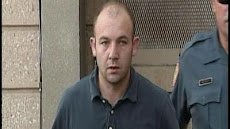









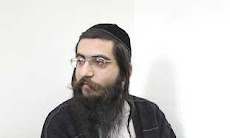





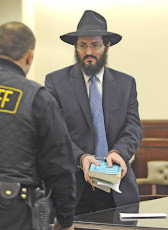














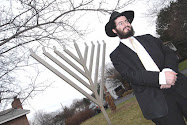




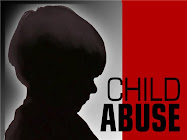













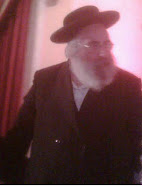








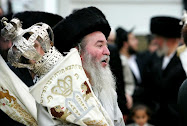


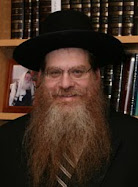












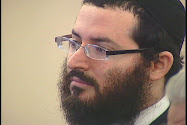
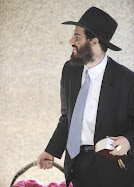
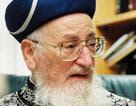









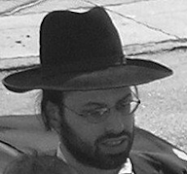

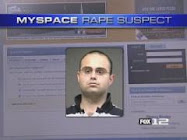









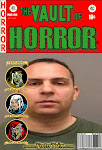












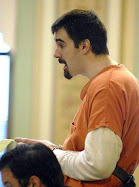


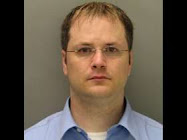




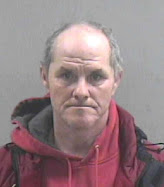















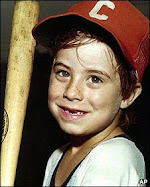




















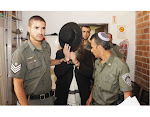



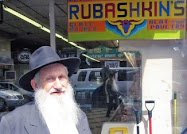















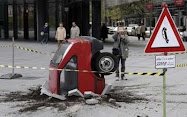


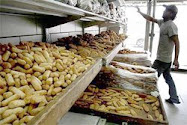





















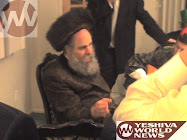









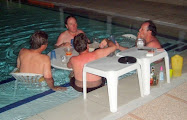

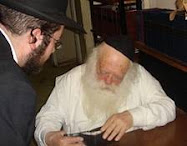

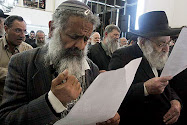
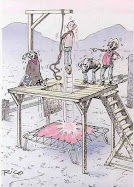
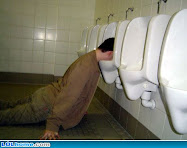




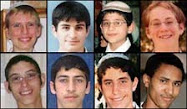
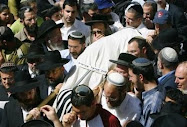
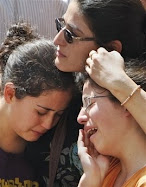
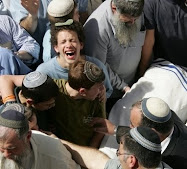
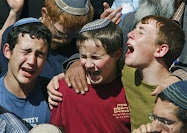
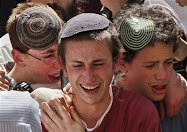
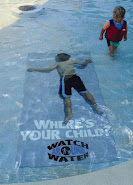

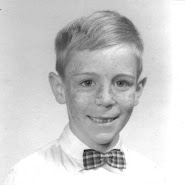







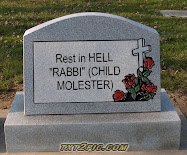








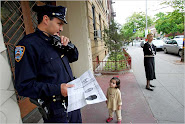















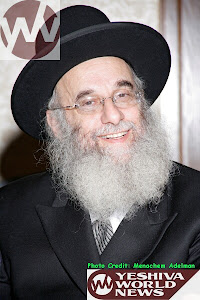

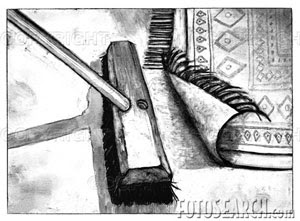
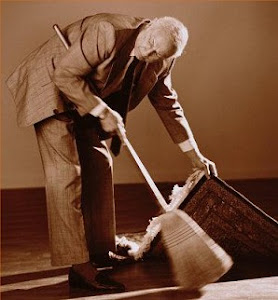









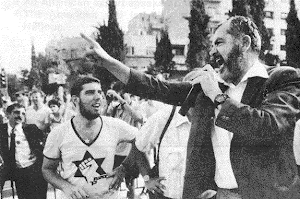



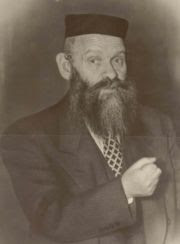




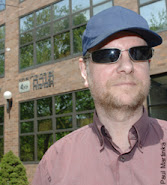


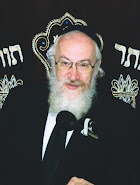





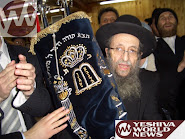



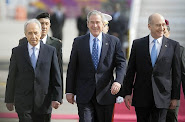
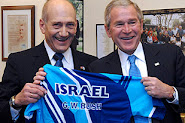
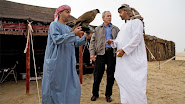


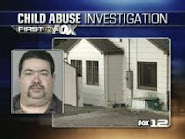
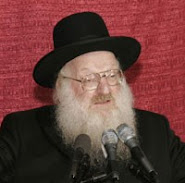

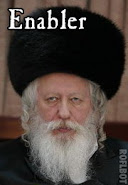



















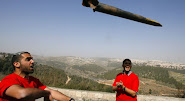
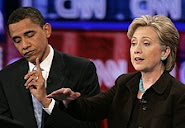


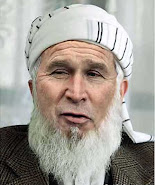









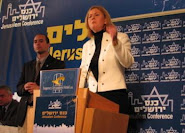


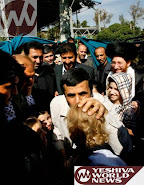
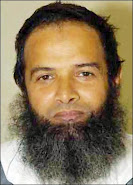


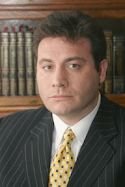


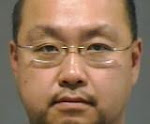
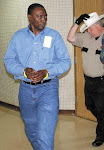

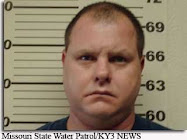



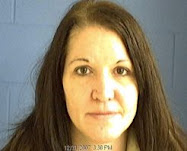


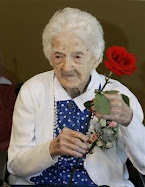
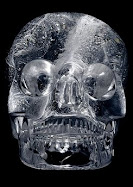
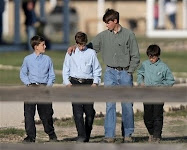



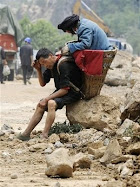



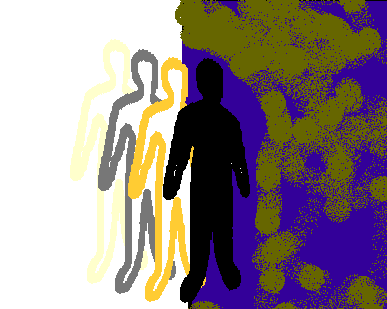

4 comments:
http://www.preventchildabuse.com/sexual.htm
It is very difficult for most people to talk about sexual abuse and even more difficult for society as a whole to acknowledge that the sexual abuse of children of all ages -- including infants -- happens everyday in the United States. It is no an easy phenomenon to define, primarily because permissible childhood behavior varies in accordance with cultural, family and social tolerances. Sexual abuse, which is 10% of all substantiated cases of child abuse, is defined as the involvement of dependent, developmentally immature children in sexual activities that they do not fully comprehend and therefore to which they are unable to give informed consent and/or which violates the taboos of society.
Sexual abuse is any misuse of a child for sexual pleasure or gratification. It has the potential to interfere with a child's normal, healthy development, both emotionally and physically. Often, sexually victimized children experience severe emotional disturbances from their own feelings of guilt and shame, as well as the feelings which society imposes on them.
At the extreme end of the spectrum, sexual abuse includes sexual intercourse and/or its deviations. These behaviors may be the final acts in a worsening pattern of sexual abuse. For this reason and because of their devastating effects, exhibitionism, fondling and any other sexual contact with children are also considered sexually abusive.
redBall.gif (326 bytes)Nontouching sexual abuse offenses include:
» Indecent exposure/exhibitionism
» Exposing children to pornographic material
» Deliberately exposing a child to the act of sexual intercourse
» Masterbation in front of a child
redBall.gif (326 bytes)Touching sexual offenses include:
» Fondling
» Making a child touch an adult's sexual organs
» Any penetration of a child's vagina or anus by an object that doesn't have a medical purpose
redBall.gif (326 bytes)Sexual exploitation offenses include:
» Engaging a child for the purposes of prostitution
» Using a child to film, photograph or model pornography
redBall.gif (326 bytes)What should I look for if I suspect a child is being sexually abuse?
YOUNGER CHILDREN PREPUBERTY AND TEENAGE OLDER CHILDREN PHYSICAL INDICATORS
Compulsive masterbation
Stealing
Suicide attempts
Bruises or bleeding in external genitalia
Bed-wetting, soiling
Running away
Early marriage
Complains of pain or itching in genitalia
Excessive curiosity about sex
Starting fires
Running away
Difficulty in sitting or walking
Altered sleep patterns
Excessive bathing
Pregnancy
Torn, stained or bloody underclothing
Learning problems
Being withdrawn and passive
Substance abuse
Sexually transmitted diseases
Separation anxiety Girls pulling up skirts
Getting in trouble with legal system
Pregnancy, especially in early adolescence
Overly compulsive behavior Sexual inference in school artwork
Developing fears and phobias Teaching others how to masterbate
Sexual acting out with peers Becoming aggressive toward peers
Becoming nonverbal Succumbing to periods of deep depression
Developing tension symptoms -- stomach aches, skin disorders Falling grades
Becoming seductive Alcohol or drug abuse
FREQUENTLY
ASKED QUESTIONS
redBall.gif (326 bytes)What is child abuse?
Child abuse is any mistreatment or neglect of a child that results in non-accidental harm or injury and which cannot be reasonably explained . Child abuse can include: physical abuse, emotional abuse, sexual abuse and neglect.
redBall.gif (326 bytes)How many children are reported and investigated for abuse or neglect?
In 2001, Child Protective Service (CPS) agencies investigated more than 3.25 million reports of child abuse and neglect throughout the United States. This is an increase of 2 percent from the previous year. Teachers, law enforcement officers, social service workers and physicians made 56 percent of the reports.
redBall.gif (326 bytes)How Many children are victims of maltreatment?
In 2001, CPS agencies determined approximately 1.1 million children were victims of substantiated or indicated child abuse and neglect. The term "substantiated" means that an allegation of maltreatment was confirmed according to the level of evidence required by the State law or State policy. The term "indicated" is an investigation finding used by some States when there is insufficient evidence to substantiate a case under State law or policy, but there is reason to suspect that maltreatment occurred or that there is risk of future maltreatment.
redBall.gif (326 bytes)Is the number of abused or neglected children increasing?
Nationally, the number of victims of substantiated or indicated maltreatment decreased between 1996 and 1997, from slightly over one million (1,030,751) to just under one million (984,000) Previously, the rate of maltreatment had been on the increase between 1990 and 1996, with an overall increase for that period of 18 percent.
redBall.gif (326 bytes)What are the most common types of maltreatment?
Neglect is the most common form of child maltreatment. CPS investigations determine that 63 percent of victims in 2001 suffered neglect; 19 percent, physical abuse; 10 percent, sexual abuse; and 8 percent, emotional maltreatment.
redBall.gif (326 bytes)How many children die each year from child abuse?
Based on data reported by CPS agencies in 2001, it is estimated that nationwide, 2,000 children died as a result of abuse or neglect. based on this number, five to six children die each day as a result of child abuse or neglect. Of these fatalities, 85 percent were children younger than six-years-old at the time of their death, and 44 percent were under the age of one.
redBall.gif (326 bytes)Who abuses and neglects children?
In 2001, 60 percent of the perpetrators were female with an average age of 31, and 40 percent were male with an average age of 34.
Approximately 84 percent were abused by a parent; Mothers alone were responsible for 47 percent of neglect and 32 percent of the physical abuse.
More than half of all victim were White, 51%; 28% were African American; 18% were Hispanic; 2 % were American Indian/Alaska Natives; and 1% were Asian/Pacific Islanders.
redBall.gif (326 bytes)What makes people abuse children?
It is difficult to imagine that any person would intentionally inflict harm on a child. Many times, physical abuse is a result of excessive discipline or physical punishment that is inappropriate for the child's age. The parent may simply be unaware of the magnitude of force with which he or she strikes a child. Most parents want to be good parents but sometimes lose control and are unable to cope.
Factors which contribute to child abuse include the immaturity of parents, lack of parenting skills, unrealistic expectations about children's behavior and capabilities, a parent's own negative childhood experience, social isolation, frequent family crises and drug or alcohol problems. Child abuse is a symptom that parents are having difficulty coping with their situation.
redBall.gif (326 bytes)Are victims of child abuse more likely to engage in criminality later in life?
According to a 1992 study sponsored by the National Institute of Justice (NIJ), maltreatment in childhood increases the likelihood of arrest as a juvenile by 53 percent, as an adult by 38 percent, and for a violent crime by 38 percent. Being abused or neglected in childhood increases the likelihood of arrest for females by 77 percent. A related 1995 NIJ report indicated that children who were sexually abuse were 28 times more likely than a control group of nonabused children to be arrested for prostitution as an adult.
redBall.gif (326 bytes)Is there any evidence linking alcohol or other drug use to child maltreatment?
A study by the National Center on Addiction and Substance Abuse found that children of substance-abusing parents were almost three times likelier to be abused and more than four times likelier to be neglected than children of parents who are not substance abusers. Other studies suggest that an estimated 50 percent to 80 percent of all child abuse cases substantiated by CPS involve some degree of substance abuse by the child's parents.
Men and Sexual Trauma
A National Center for PTSD Fact Sheet
By Julia M. Whealin, Ph.D.
At least 10% of men in our country have suffered from trauma as a result of sexual assault. Like women, men who experience sexual assault may suffer from depression, PTSD, and other emotional problems as a result. However, because men and women have different life experiences due to their different gender roles, emotional symptoms following trauma can look different in men than they do in women.
Who are the perpetrators of male sexual assault?
Those who sexually assault men or boys differ in a number of ways from those who assault only females.
Boys are more likely than girls to be sexually abused by strangers or by authority figures in organizations such as schools, the church, or athletics programs.
Those who sexually assault males usually choose young men and male adolescents (the average age is 17 years old) as their victims and are more likely to assault many victims, compared to those who sexually assault females.
Perpetrators often assault young males in isolated areas where help is not readily available. For instance, a perpetrator who assaults males may pick up a teenage hitchhiker on a remote road or find some other way to isolate his intended victim.
As is true about those who assault and sexually abuse women and girls, most perpetrators of males are men. Specifically, men are perpetrators in about 86% of male victimization cases.
Despite popular belief that only gay men would sexually assault men or boys, most male perpetrators identify themselves as heterosexuals and often have consensual sexual relationships with women.
What are some symptoms related to sexual trauma in boys and men?
Particularly when the assailant is a woman, the impact of sexual assault upon men may be downplayed by professionals and the public. However, men who have early sexual experiences with adults report problems in various areas at a much higher rate than those who do not.
Emotional Disorders – Men and boys who have been sexually assaulted are more likely to suffer from PTSD, other anxiety disorders, and depression than those who have never been abused sexually.
Substance Abuse – Men who have been sexually assaulted have a high incidence of alcohol and drug use. For example, the probability for alcohol problems in adulthood is about 80% for men who have experienced sexual abuse, as compared to 11% for men who have never been sexually abused.
Encopresis – One study revealed that a percentage of boys who suffer from encopresis (bowel incontinence) had been sexually abused.
Risk Taking Behavior – Exposure to sexual trauma can lead to risk-taking behavior during adolescence, such as running away and other delinquent behaviors. Having been sexually assaulted also makes boys more likely to engage in behaviors that put them at risk for contracting HIV (such as having sex without using condoms).
How does male gender socialization affect the recognition of male sexual assault?
* Men who have not dealt with the symptoms of their sexual assault may experience confusion about their sexuality and role as men (their gender role). This confusion occurs for many reasons. The traditional gender role for men in our society dictates that males be strong, self-reliant, and in control. Our society often does not recognize that men and boys can also be victims. Boys and men may be taught that being victimized implies that they are weak and, thus, not a man.
* Furthermore, when the perpetrator of a sexual assault is a man, feelings of shame, stigmatization, and negative reactions from others may also result from the social taboos.
* When the perpetrator of a sexual assault is a woman, some people do not take the assault seriously, and men may feel as though they are unheard and unrecognized as victims.
* Parents often know very little about male sexual assault and may harm their male children who are sexually abused by downplaying or denying the experience.
What impact does gender socialization have upon men who have been sexually assaulted?
Because of their experience of sexual assault, some men attempt to prove their masculinity by becoming hyper-masculine. For example, some men deal with their experience of sexual assault by having multiple female sexual partners or engaging in dangerous "macho" behaviors to prove their masculinity. Parents of boys who have been sexually abused may inadvertently encourage this process.
Men who acknowledge their assault may have to struggle with feeling ignored and invalidated by others who do not recognize that men can also be victimized.
Because of ignorance and myths about sexual abuse, men sometimes fear that the sexual assault by another man will cause them to become gay. This belief is false. Sexual assault does not cause someone to have a particular sexual orientation.
Because of these various gender-related issues, men are more likely than women to feel ashamed of the assault, to not talk about it, and to not seek help from professionals.
Are men who were sexually assaulted as children more likely to become child molesters?
Another myth that male victims of sexual assault face is the assumption that they will become abusers themselves. For instance, they may have heard that survivors of sexual abuse tend to repeat the cycle of abuse by abusing children themselves. Some research has shown that men who were sexually abused by men during their childhood have a greater number of sexual thoughts and fantasies about sexual contact with male children and adolescents. However, it is important to know that most male victims of child sexual abuse do not become sex offenders.
Furthermore, many male perpetrators do not have a history of child sexual abuse. Rather, sexual offenders more often grew up in families where they suffered from several other forms of abuse, such as physical and emotional. Men who assault others also have difficulty with empathy, and thus put their own needs above the needs of their victims.
Is there help for men who have been sexually assaulted?
It is important for men who have been sexually assaulted to understand the connection between sexual assault and hyper-masculine, aggressive, and self-destructive behavior. Through therapy, men often learn to resist myths about what a "real man" is and adopt a more realistic model for safe and rewarding living.
It is important for men who have been sexually assaulted and who are confused about their sexual orientation to confront misleading societal ideas about sexual assault and homosexuality.
Men who have been assaulted often feel stigmatized, which can be the most damaging aspect of the assault. It is important for men to discuss the assault with a caring and unbiased support person, whether that person is a friend, clergyman, or clinician. However, it is vital that this person be knowledgeable about sexual assault and men.
A local rape crisis center may be able to refer men to mental-health practitioners who are well-informed about the needs of male sexual assault victims.
Summary
There is a bias in our culture against viewing the sexual assault of boys and men as prevalent and abusive. Because of this bias, there is a belief that boys and men do not experience abuse and do not suffer from the same negative impact that girls and women do. However, research shows that at least 10% of boys and men are sexually assaulted and that boys and men can suffer profoundly from the experience. Because so few people have information about male sexual assault, men often suffer from a sense of being different, which can make it more difficult for men to seek help. If you are a man who has been assaulted and you suffer from any of these difficulties, please seek help from a mental-health professional who has expertise working with men who have been sexually assaulted.
You are correct. I do not know of too many gedoilay hador today who are in the same stature as the chazon ish. Harav chaim kanievesky is maybe close. who else?
Harav Chaim Kanievsky, i'd put him in honorable mention, though Chazon Ish was clearly on a higher madreiga. Chazon Ish had malochim (angels) visiting him and learning with him.
Also, let's not forget that every generation has lamed vov tzadikim (36 hidden tzadikim), it is in their merit that the world continues to exist.
In Parshas Devarim, the pasuk starts out with the words "Aila Hadvarim"
which translates to "these are the words". The word "Aila" is numerically equivalent to 36. Hashem is telling us: these are the words of our leaders whose merit the world benefits from.
In Maseches Sukkah (45b) "Abaye says:
There are never less than thirty six righteous people in the world who greet the Divine Presence each day".
Who are these "leaders" to whom the verse refers? The 36 greatest tzadikim of every generation.
Post a Comment